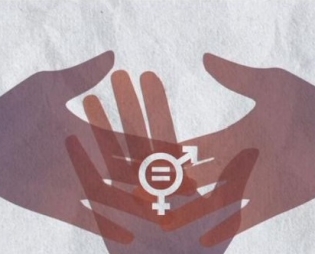Narrating Linguistic and Cultural Diversity: Critical and multidisciplinary approaches in Second and Additional Language Education
French-South African perspectives
CONTEXT
This study explores the emergence and interactions between identity and ideology in the field of Language Education from a French-South African point of view. Taking as a point of departure the cultural and linguistic diversity which characterises the field and is promoted as a finality in both teaching and learning programmes, this Partenariat Hubert Curien (PHC) Protea team addresses (emerging) ideological and identity (re)configurations at play in the context of postcolonialism and globalisation. The overarching conceptual and methodological framework used in this study is Narrative Inquiry and Critical Discourse Analysis. The question of critical diversity and identity formation is examined at all levels (teacher training, academic profiles, teaching and learning) from an educational, sociolinguistic and literary perspective.
Key words : L2/foreign language education, otherness, identity, critical diversity, narrative inquiry, discourse analysis, critical reflexivity.
TEAMS
This project was initiated thanks to funding from the PHC Protea bilateral programme between France and South Africa, run by the South African National Research Foundation (NRF) and Campus France. It enabled the pooling of skills by the French and South African research partners working on cultural and linguistic diversity from the angle of Narrative Inquiry and Critical Discourse Analysis. This multidisciplinary consortium involves Paris-based French university, l’Institut National des langues et civilisations orientales INALCO (Team UMR CNRS SeDyL 8202), and a South African university, The University of Witwatersrand (Johannesburg). The team is composed of PhD students and of 4 academics and senior members (Prof Gilles Forlot, Dr. Fiona Horne, Dr. Emmanuel Ndour and Dr. Céline Peigné) collaborating on the overarching questions of language, diversity and identity. Individual research themes which speak to these topics include:
- Neurodiversity and language education;
- Teacher and student life narratives in relation to teaching/learning foreign languages;
- National narratives, language and discourse;
- Personal and collective ideologies and how these influence teaching and research corpora in the field of language and literature;
- Mapping Francophonie to emerging South African identities through cinema in teaching programmes;
- The diversification of teacher profiles and linguistic insecurity;
- Discursive constructions of national histories through History Education.
Abridged reference list
Auboussier, J., Doytcheva, M., Seurrat, M., Tatchim, N. (2023). “La diversite en discours: contexte, formes, et dispositifs”. Mots. Les langages du politique n° 131, 9-26.
Barkhuizen G., Benson P., & Chik A. (2014). Narrative inquiry in language teaching and learning research. Taylor & Francis. https://doi.org/10.4324/9780203124994.
Bhabha H. (2007). Les Lieux de la culture. Une théorie postcoloniale. Paris: Payot.
Clandinin, D Jean & Connelly, F. Michael. (2000). Narrative Inquiry: Experience and Story in Qualitative Research. San Francisco: Wiley.
Dervin, F., ed. (2015) Analyser l’identité. L’apport des focus groups. Paris: L’Harmattan
Fairclough, N. (1989). Language and Power. London: Longman
Heller M. (2002). Pour une sociolinguistique critique, Paris : Didier.
Horne F. (2016). The repositioning of literature in French foreign language teaching in South Africa: Performing dialogue, diversity and difference, Journal for Language Teaching, n°50.
Peigné C. (2023). La recherche biographique : un levier pour construire une posture alteritaire en formation d’enseignants, Chapter 3. In : Molinie M. (dir.), Autobiographie, réflexivité et construction des savoirs en didactique des langues, L’Harmattan.
Rancière J. (2014). Le Maître ignorant : cinq leçons sur l’émancipation intellectuelle. Fayard.
Razfar, A. (2012). Narrating Beliefs: A Language Ideologies Approach to Teacher Beliefs. Anthropology & Education Quarterly. 43. 10.1111/j.1548-1492.2011.01157.x.
Ricoeur P. (1990). Soi-même comme un autre. Paris: Seuil.
Schön D. (1983). The Reflexive Practitioner: How professionals think in action. Basic books.
Séoud, A. (1997). Pour une didactique de la littérature. Paris, Hatier-Didier







Problem displaying Facebook posts.
Click to show error